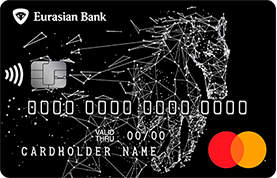With the summer holidays coming, children are spending more time online — and scammers are increasingly using this. Eurasian Bank urges parents to be especially attentive and shares recommendations on how to protect children from digital threats.
Among the most common schemes are fake mobile games, social media posts, and deception under the guise of school services. Scammers can pose as school staff, head teachers, or supervisors and request personal data, SMS codes, or information about parents from the child.
How scammers operate:
The schemes are becoming more sophisticated as the attackers adapt to a child and adolescent audience. Here are the main methods that are currently being used:
- Fake versions of popular games. Scammers create fake apps disguised as famous games. Inside is malicious code that steals logins, passwords, and bank card information. Such games are often distributed not through official stores, but through game chats, comments, and social networks.
- False messages from the “school”. Criminals can introduce themselves as head teachers or teachers. Children are offered to register on the “learning portal”, they are asked to confirm their personal data or enter an SMS code, ostensibly to log into an electronic diary. In fact, this is an attempt to gain access to the child’s device.
- Rent accounts in social networks and messengers. Teenagers are offered “easy earnings”: transfer access to their page for a while. These accounts are then used for phishing, sending malicious links, and attacking other users, most often from among the child’s own friends.
- Fake offers to “buy” exam answers or find out the results in advance. This is especially important during the UNT, trial tests and state examinations. Often such offers lead to phishing sites or require payment for “access”, after which the scammers disappear.
- “Free gifts” in games. Malicious files are distributed under the guise of updates and bonuses. They often require additional permissions to be set on the device, such as access to messages or a contact list.
Recommendations of Eurasian Bank to parents:
- Install antivirus software on children’s devices and enable parental controls.
- Explain to the child that it is forbidden to share SMS codes and personal information with anyone.
- Allow you to install apps only from official stores (App Store, Google Play, RuStore).
- Check regularly which apps are installed on your device and which permissions they request.
- Maintain an open dialogue with your child about online safety.
Take care of your children and their data!





